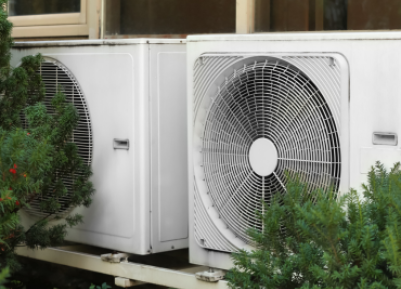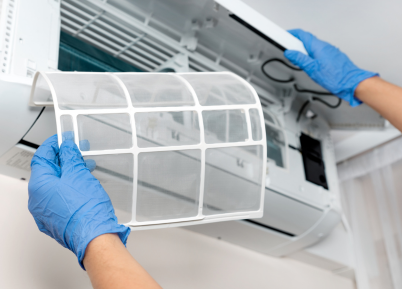
Funding Your Comfort: How People Pay for New HVAC Systems
Introduction
When it comes to maintaining a comfortable home, few systems are as crucial as your heating, ventilation, and air conditioning (HVAC) system. Whether you're sweltering under summer heat or bundling up in winter's chill, an efficient HVAC system is essential for comfort. However, the costs associated with installing or upgrading these systems can be daunting. That's why understanding how to fund this investment is vital for homeowners everywhere. In this comprehensive guide, we will explore various financing options and strategies for acquiring new HVAC systems while ensuring you know where to look for local services like "HVAC near me" or "AC repair."
Understanding HVAC Systems
What is an HVAC System?
An HVAC system combines heating, ventilation, and air conditioning technologies to regulate indoor climates. This complex system consists of components that work together to ensure optimal thermal comfort and air quality in homes and buildings.

Components of an HVAC System
Knowing your HVAC system's components can help you make informed decisions when seeking repairs or replacements.
The Importance of a Reliable HVAC System
Comfort Matters
A reliable HVAC system maintains a consistent temperature throughout your home, enhancing comfort levels regardless of outdoor conditions.
Energy Efficiency
Modern systems are designed to be more energy-efficient than older models, which can significantly reduce utility bills over time.
Air Quality Control
HVAC systems play a critical role in filtering out pollutants and allergens from indoor air, contributing to a healthier living environment.
Funding Your Comfort: How People Pay for New HVAC Systems
air conditioning and heating servicesInvesting in a new HVAC system can feel overwhelming due to its potential cost. However, several financing solutions exist that can ease this burden.
Cost Considerations in Installing New HVAC Systems
Initial Purchase Price
The first thing you'll notice when considering an AC installation is the initial purchase price of the equipment itself.
Installation Costs
Beyond just the unit's price tag, labor costs associated with hiring an HVAC contractor near me also factor into total expenses.
Long-Term Expenses
Consider ongoing maintenance and potential repairs—this is where working with a reputable HVAC company becomes crucial!
Financing Options for New HVAC Systems
1. Cash Payment
Paying upfront and in cash might not be feasible for everyone but offers several benefits:
- No interest payments
- Complete ownership from day one
- Avoiding long-term debt
2. Credit Cards
Using credit cards can be convenient if you have a good credit limit:
- Immediate access to funds
- Potential rewards points
- Interest rates may apply
However, high-interest rates could lead you into debt if not managed properly.
3. Personal Loans
Personal loans through banks or credit unions often carry lower interest rates than credit cards:

- Fixed monthly payments
- Flexible loan amounts
- Longer repayment terms
This option suits those who prefer predictable budgeting without tying their assets or equity into the loan.
Home Equity Loans vs. Lines of Credit (HELOC)
Understanding Home Equity Financing
If you've built equity in your home, using it to cover new HVAC costs can be advantageous:
- Lower interest rates compared to unsecured loans
- Tax-deductible interest payments (consult a tax advisor)
Home Equity Loans
These provide a lump sum paid off over time at fixed rates.
HELOCs
These offer flexibility akin to credit cards; however, they usually come with variable interest rates.
Manufacturer Financing Programs
Many major manufacturers partner with local HVAC services to offer financing options directly:
Check whether manufacturers like Trane or Lennox have special promotions available through your local HVAC contractors.
Conclusion on Funding Your Comfort: How People Pay for New HVAC Systems
Navigating through available funding options for a new heating and cooling system requires thorough research and careful planning. Whether you opt for cash payments or explore financing solutions such as personal loans or manufacturer programs, being informed will help ensure that you find the best path forward suited to your financial situation. Always consider consulting with professionals from reputable HVAC companies who can guide you through both installation options and financing advice tailored specifically for your needs.
Frequently Asked Questions (FAQs)
What’s the average cost of a new HVAC installation? The cost varies depending on factors like size and efficiency but typically ranges from $5,000-$10,000.
How do I find the best HVAC contractor near me? Research online reviews, ask friends for recommendations, and check their licenses before hiring any professional service.
Can I finance my new AC installation? Yes! Many companies offer flexible financing programs tailored to homeowners' needs.
Is it worth repairing an old AC unit instead of getting new installation? It depends on age and condition; generally speaking, if repairs exceed 50% of replacement costs within five years of lifespan left—replace it!
What should I consider when choosing an HVAC company? Look at experience level, customer reviews/testimonials & warranty offered on parts/labor before making any decision!
How often should I schedule maintenance for my HVAC system? Ideally twice yearly—once before summer starts & once before winter kicks in—to ensure efficiency & prevent breakdowns!

In summary, understanding how people pay for new HVAC systems is essential knowledge that empowers homeowners during significant investments in their comfort systems while maximizing their financial wellbeing!